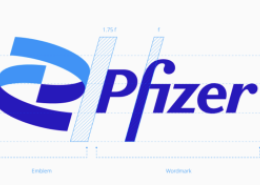Pfizer To Present Research On Established Therapies And New Approaches To Cancer Treatment Using Investigational Agents
Key Study Results Will Be Presented Across 5 Compounds and 9 Tumor Types
NEW YORK--(BUSINESS WIRE)--Pfizer Oncology will present data from across its portfolio, including results from long-term follow-up of Aromasin® (exemestane tablets) in a study of early breast cancer,1 updated study results from a Phase 3 study of Sutent® (sunitinib malate) in pancreatic neuroendocrine tumors (NET),2 and early-stage research of investigational agents PF-023410663 and figitumumab (CP-751,871)4 in patients with non-small cell lung cancer (NSCLC). These data, and over a dozen additional abstracts covering Pfizer agents, will be presented at the ECCO 15/ESMO 34 bi-annual meeting in Berlin, Germany from September 20 to September 24.
“Pfizer is conducting research to identify clinical benefits for targeted patient populations with investigational compounds like cMET/ALK inhibitor, while continuing to study drugs like Aromasin through their entire life cycle to ensure we provide maximum support and information to patients and healthcare providers about our cancer products,” said Dr. Mace Rothenberg, senior vice president of clinical development and medical affairs for Pfizer’s Oncology Business Unit.
Featured Data Highlights
At the meeting, Pfizer will present new 91-month median follow-up data from the Intergroup Exemestane Study (IES) study (Abstract #5010; September 22) which is evaluating the clinical benefits of switching women to Aromasin after two to three years of tamoxifen versus continuing women on tamoxifen for a full five years of therapy.1 IES, a randomized, double-blind, multinational trial of postmenopausal women with hormone sensitive early breast cancer,5 enrolled 4,724 patients. IES is a landmark trial with the longest follow-up of endocrine treatment in the adjuvant switch setting.6
New study results from an expansion cohort of a Phase 1 study evaluating the investigational agent PF-02341066 in patients with NSCLC carrying the ALK (anaplastic lymphoma kinases) fusion gene will be highlighted in the “Best of 2009” Presidential Plenary session Thursday, September 24 (Abstract #6G).3 PF-02341066 is a selective ATP-competitive small molecule inhibitor of both c-MET/HGF receptor and ALK tyrosine kinases and their oncogenic variants. PF-02341066 is the first agent in clinical development that selectively targets a unique genetic feature found in several types of cancer, echinoderm microtubule-associate protein-like 4 (EML4)-ALK translocation, present in approximately 3 - 7 percent of NSCLC patients.7
In addition, final results will be presented from a Phase 3 trial (Abstract #6.502, September 23), which was discontinued in January 2009 following the recommendation of an independent Data Safety Monitoring Board (DSMB) after finding no evidence of improvement in the primary endpoint of survival in patients with advanced pancreatic cancer treated with axitinib and gemcitabine, compared to gemcitabine alone.
Additional Pfizer Data Presentations
- Sunitinib vs placebo for the treatment of progressive, well-differentiated pancreatic islet cell tumors: results of a Phase 3, randomized, double-blind trial (Abstract #6.501, September 23)
- The anti-IGF-1R antibody figitumumab (CP-751,871) is active in patients with lung adenocarcinoma undergoing epithelial-to-mesenchymal transition (Abstract #1.006, September 23)
About Pfizer Oncology
Pfizer Oncology is committed to the discovery, investigation and development of innovative treatment options for cancer patients worldwide. Our robust pipeline consists of 21 biologics and small molecules in clinical development. Pfizer Oncology has over 200 clinical trials including robust Phase 3 clinical trial programs in renal cell carcinoma, prostate cancer, non-small cell lung cancer, metastatic breast cancer, and hepatocellular carcinoma.
By working collaboratively with academic institutions, researchers, governments, and licensing partners, Pfizer Oncology strives to transform treatment by targeting the right drug for the right patient at the right time.
For more information please visit www.Pfizer.com.
About Sutent® (sunitinib malate)
Sutent is an oral multi-kinase inhibitor approved for the treatment of gastrointestinal stromal tumor (GIST) after disease progression on or intolerance to imatinib mesylate and advanced / metastatic renal cell carcinoma (RCC).
Sutent works by blocking multiple molecular targets implicated in the growth, proliferation and spread of cancer. Two important Sutent targets, vascular endothelial growth factor receptor (VEGFR) and platelet-derived growth factor receptor (PDGFR), are expressed by many types of solid tumors and are thought to play a crucial role in angiogenesis, the process by which tumors acquire blood vessels, oxygen and nutrients needed for growth. Sutent also inhibits other targets important to tumor growth, including KIT, FLT3 and RET.
Important Sutent (sunitinib malate) Safety Information
Women of child bearing age who are (or become) pregnant during therapy should be informed of the potential for fetal harm while on Sutent.
Decreases in left ventricular ejection fraction (LVEF) to below the lower limit of normal (LLN) have been observed. Patients with concomitant cardiac conditions should be carefully monitored for clinical signs and symptoms of congestive heart failure.
Patients should be monitored for hypertension and treated as needed with standard antihypertensive therapy. Complete blood counts (CBCs) with platelet count and serum chemistries should be performed at the beginning of each treatment cycle for patients receiving treatment with Sutent.
The most common adverse reactions in advanced RCC and GIST clinical trials were fatigue, asthenia, diarrhea, nausea, mucositis/stomatitis, vomiting, dyspepsia, abdominal pain, constipation, hypertension, rash, hand-foot syndrome, skin discoloration, altered taste, anorexia and bleeding.
About Aromasin® (exemestane tablets)
Aromasin is the only aromatase inhibitor indicated for sequential therapy in postmenopausal women with HR positive early breast cancer after two to three years of tamoxifen for a total of five years of adjuvant therapy. The use of Aromasin in this setting is supported by the landmark IES trial. Aromasin is also indicated for the treatment of advanced breast cancer in postmenopausal women whose disease has progressed following tamoxifen therapy.
Important Aromasin (exemestane tablets) Safety Information
Aromasin should not be used in women who are premenopausal, are nursing or pregnant, have a known hypersensitivity to the drug, or are taking estrogen-containing agents. Dose modification is recommended for patients who are receiving certain medications, including strong CYP 3A4 inducers. In patients with early breast cancer, elevations in bilirubin, alkaline phosphatase, and creatinine were more common in those receiving Aromasin than either tamoxifen or placebo. Reductions in bone mineral density over time are seen with the use of Aromasin.
For more information on Pfizer Oncology, including full prescribing information for Sutent (sunitinib malate) and Aromasin (exemestane tablets), please visit www.pfizer.com.
DISCLOSURE NOTICE: The information contained in this release is as of September 18, 2009. Pfizer assumes no obligation to update any forward-looking statements contained in this release as the result of new information or future events or developments.
This release contains forward-looking information about the product candidates figitumumab (CP-751,871) PF-02341066, axitinib, including with respect to their potential benefits, that involves substantial risks and uncertainties. Such risks and uncertainties include, among other things, the uncertainties inherent in research and development; decisions by regulatory authorities regarding whether and when to approve any drug applications that may be filed for such product candidates as well as their decisions regarding labeling and other matters that could affect the availability or commercial potential of such product candidates; and competitive developments.
A further description of risks and uncertainties can be found in Pfizer’s Annual Report on Form 10-K for the fiscal year ended December 31, 2008 and in its reports on Form 10-Q and Form 8-K.
1 ECCO/ESMO Submitted Abstract #5.011. Survival and safety post study treatment completion: an updated analysis of the Intergroup Exemestane Study (IES). Oral Presentation, September 22, 2009: 9:30am-9:45am. RC Coombes – Presenter. 15th Congress of the European CanCer Organisation and 34th Congress of the European Society for Medical Oncology. Berlin, Germany. September 20-September 25, 2009.
2 ECCO/ESMO Submitted Abstract #6.501. Sunitinib (SU) vs placebo for treatment of progressive, well-differentiated pancreatic islet cell tumours: results of a Phase III, randomized, double-blind trial. Oral Presentation, September 23, 2009: 9-11am. JL Raoul- Presenter.15th Congress of the European CanCer Organisation and 34th Congress of the European Society for Medical Oncology. Berlin, Germany. September 20-September 25, 2009.
3 ECCO/ESMO Final Scientific Program 2009.
4 ECCO/ESMO Submitted Abstract #1.006. The Anti-IGF-1R Antibody Figitumumab (CP-751,871) is Active iin Patients with Lung Andenocarcinoma undergoing Epithelial-to-Mesenchymal Transition. Oral Presentation, September 24, 2009: 10:30am-10:45am. A Gualberto-Presenter. 15th Congress of the European CanCer Organisation and 34th Congress of the European Society for Medical Oncology. Berlin, Germany. September 20-September 25, 2009.
5 Coombes RC. A Randomized Trial of Exemestane after Two to Three Years of Tamoxifen Therapy in Postmenopausal Women with Primary Breast Cancer. N Engl J Med.2004: 350:1081-1092.
6 Coombes RC. Survival and safety of exemestane versus tamoxifen after 2-3 years’ tamoxifen treatment (Intergroup Exemestane Study): a randomized controlled trial. Lancet. 2007; 369:559-570.
7 Horn L. EML4-ALK: Honing In on a New Target in Non-Small Cell Lung Cancer. J Clin Oncol. 2009; 27: 1-4.
Media:
Chris Loder, 212-733-7897
Martin Fensch
+49(0)3055 00 55-52197
or
Investor:
Jennifer Davis
212-733-0717








